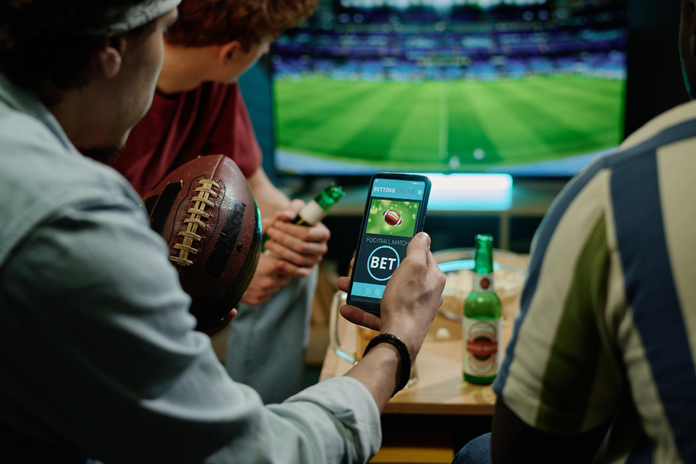This post was originally published on this site

The ongoing legal battle between the NFL Players Association and DraftKings (NASDAQ:DKNG) has brought to light significant issues surrounding the classification of non-fungible tokens as securities. This dispute, unfolding in the Southern District of New York, centers around a licensing agreement and the potential financial repercussions for both parties. As the case progresses, it underscores the complex and evolving legal landscape of NFTs in the United States.
Background of the NFLPA DraftKings Dispute
The roots of this conflict trace back to 2021 when DraftKings entered into a licensing agreement with NFLPA Licensors, which represents the intellectual property and name, image, and likeness rights of NFL players. This deal allowed DraftKings to use NFL players’ identities for NFTs, with the understanding that DraftKings would pay the NFLPA a royalty on sales, including guaranteed minimum payments regardless of sales performance.
However, by 2023, the once-booming NFT market had cooled significantly, leading to decreased prices and trading volumes. DraftKings, like many companies that invested heavily in NFTs, began experiencing “buyer’s remorse.” This shift in the market environment prompted DraftKings to reconsider its commitments under the agreement, setting the stage for the current legal showdown.
The Central Issue: Are NFTs Securities?
The core of the NFLPA DraftKings lawsuit revolves around whether NFTs should be classified as securities under U.S. law. This classification carries significant implications, as it would require companies dealing in NFTs to comply with extensive securities regulations. The NFLPA argues that DraftKings prematurely invoked a contract clause allowing for the cessation of payments if NFTs were legally determined to be securities. According to the NFLPA, DraftKings used an early ruling in a separate case, Dufoe v. DraftKings, to justify its actions.
In the Dufoe case, U.S. District Judge Denise J. Casper denied DraftKings’ motion to dismiss, allowing the case to proceed. The plaintiff, Justin Dufoe, accused DraftKings of selling unregistered securities in the form of NFTs. However, the NFLPA contends that this ruling was not a final judgment on the merits but merely allowed the case to move forward. Therefore, the NFLPA argues that DraftKings had no legal basis to halt payments or terminate the agreement based on this preliminary ruling.
Legal Nuances and Industry Implications
The NFLPA’s lawsuit emphasizes the nuanced and unsettled nature of NFT classification. While Judge Casper’s ruling did not definitively categorize NFTs as securities, it did acknowledge that Dufoe’s allegations were plausible enough to warrant further examination in court. This has led to ongoing debates within the legal community and among regulatory bodies about the nature of NFTs and their appropriate regulatory framework.
If NFTs are ultimately classified as securities, it would trigger a host of compliance requirements for companies like DraftKings, including registration with the Securities and Exchange Commission and adherence to strict disclosure rules. Such a development could reshape the landscape for businesses operating in the NFT space, making the outcome of this lawsuit particularly significant.
Possible Outcomes and Future Considerations
As the NFLPA DraftKings lawsuit moves forward, both parties are expected to present their arguments in court. DraftKings is likely to seek dismissal of the case, potentially citing additional legal precedents to support its position. However, given the financial stakes involved, there is also a possibility that the two sides could reach an out-of-court settlement.
The resolution of this case will likely have broader implications for the NFT industry, influencing how future contracts are structured and how companies approach NFT-related ventures. For now, the dispute underscores the uncertainty and complexity surrounding NFTs and their place within the U.S. legal system.
Conclusion: A Pivotal Moment for NFTs
The NFLPA DraftKings lawsuit represents a critical moment in the evolving legal landscape of NFTs. As courts and regulators grapple with the classification of these digital assets, the outcome of this case could have far-reaching consequences for the broader market. Whether through a legal ruling or a settlement, the resolution of this dispute will provide valuable insights into the future of NFTs and their regulation in the United States.
Featured Image: Freepik
